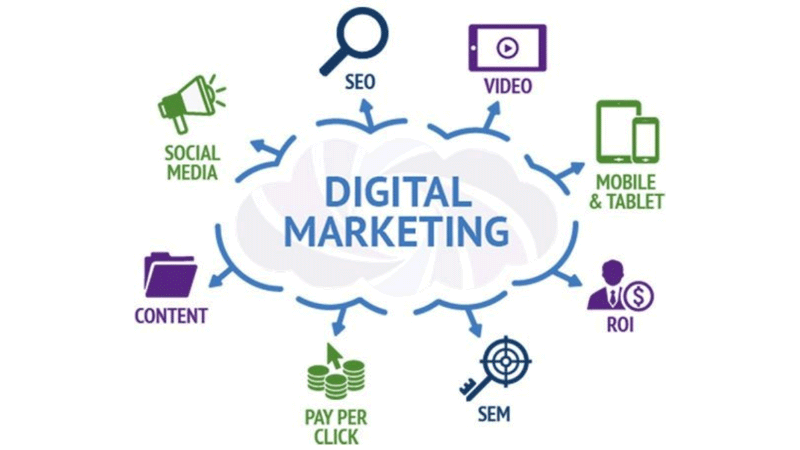Introduction: The Foundation of Digital Marketing Success
Digital marketing has revolutionized how businesses connect with customers. From social media ads to search engine optimization, the digital world is filled with tools that allow brands to reach millions of people instantly. But behind every successful digital campaign lies one critical foundation: market research.






Without understanding your audience, competitors, and market trends, even the most creative marketing strategy can fail. Market research in digital marketing is not just about numbers—it’s about insights, patterns, and foresight. It tells you what your customers want, how they behave online, and how your brand can position itself in an overcrowded digital space.
This article provides a comprehensive explanation of digital marketing market research, exploring its meaning, importance, methods, tools, challenges, and future trends.
What is Digital Marketing Market Research?
At its core, digital marketing market research is the process of collecting, analyzing, and interpreting data about your target audience, competitors, and industry trends—specifically within the digital environment. It helps businesses answer questions like:
- Who is my target audience online?
- What platforms do they use the most?
- What content engages them?
- What products or services are they searching for?
- How are competitors positioning themselves digitally?
Unlike traditional market research, which relied heavily on surveys and focus groups, digital market research uses real-time data from websites, social media platforms, search engines, and analytics tools.
Why Market Research Matters in Digital Marketing

1. Understanding Consumer Behavior
Customers today are digital-first. They research products, read reviews, and interact with brands online before making decisions. Market research reveals their search patterns, purchase behavior, and content preferences.
2. Reducing Risks
Launching campaigns without research is like shooting arrows in the dark. By studying consumer insights and competitor trends, companies reduce risks and make smarter investments.
3. Building Targeted Campaigns
Digital platforms allow laser-focused targeting, but only if you know your audience well. Market research identifies demographics, psychographics, and behavioral traits, ensuring personalized messaging.
4. Staying Ahead of Competitors
In the digital marketplace, trends change quickly. Regular market research helps companies adapt faster and gain a competitive advantage.
5. Enhancing ROI
Research ensures that budgets are spent wisely, campaigns are data-driven, and results are measurable—leading to better return on investment.
Types of Digital Marketing Market Research
1. Primary Research
Direct data collection from your target audience. Methods include:
- Online surveys
- Web interviews
- Focus groups through Zoom or social platforms
- Feedback forms on websites
2. Secondary Research
Using existing data to study markets. This includes:
- Industry reports
- Government statistics
- Case studies
- Competitor website analysis
3. Qualitative Research
Understanding why customers behave a certain way. Examples:
- Customer opinion analysis on social media
- Online communities and forums
- Long-form feedback from reviews
4. Quantitative Research
Numerical data collected online. Examples:
- Website traffic numbers
- Click-through rates
- Conversion percentages
- Social media engagement metrics
Steps to Conduct Digital Marketing Market Research

Step 1: Define Objectives
Before collecting data, clearly define what you want to know. Are you analyzing audience preferences? Competitor strategies? Pricing models?
Step 2: Identify Target Audience
Segment customers by:
- Demographics (age, gender, income, education)
- Psychographics (interests, values, lifestyle)
- Behavior (online shopping habits, device usage, browsing patterns)
Step 3: Choose Research Methods
Select the best combination of primary and secondary research methods suited for your goals.
Step 4: Collect Data
Use digital tools like Google Analytics, SEMrush, Ahrefs, SimilarWeb, and social media insights.
Step 5: Analyze and Interpret Data
Turn raw data into actionable insights. Example: If research shows high bounce rates on your site, it signals poor user experience or irrelevant content.
Step 6: Apply Findings to Strategy
Use insights to adjust campaigns—change keywords, redesign ads, or target new demographics.
Step 7: Monitor and Update
Market research is ongoing. Regular updates ensure that your strategy adapts to shifting trends.
Key Areas of Digital Marketing Market Research
1. Consumer Insights
- Online purchase patterns
- Device usage (mobile-first or desktop)
- Time of day for online activity
- Preferred content formats (video, blog, infographic)
2. Competitor Analysis
- Studying competitors’ SEO keywords
- Analyzing social media strategies
- Identifying their ad placements
- Monitoring reviews and customer sentiment
3. Industry Trends
- Emerging technologies (AI, AR/VR, voice search)
- Shifting consumer expectations
- Regulatory changes affecting digital advertising
4. Content Effectiveness
Market research measures which type of content—blogs, reels, podcasts—works best for specific audiences.
Digital Tools for Market Research
- Google Analytics – tracks website traffic and user behavior.
- SEMrush & Ahrefs – analyze keywords, backlinks, and competitor SEO.
- BuzzSumo – identifies trending content and influencers.
- Hootsuite & Sprout Social – track social media engagement.
- SurveyMonkey & Typeform – conduct online surveys.
- Tableau & Power BI – visualize market research data.
These tools make data collection faster, more accurate, and actionable.
Market Research in Different Digital Marketing Channels

1. SEO (Search Engine Optimization)
Market research helps identify high-ranking keywords, search intent, and competition, ensuring that websites appear at the top of Google results.
2. Social Media Marketing
Research shows which platforms (Instagram, LinkedIn, TikTok) your audience prefers and what kind of content goes viral.
3. Content Marketing
Research ensures blogs, videos, and infographics align with consumer needs and industry gaps.
4. Email Marketing
By studying open rates and consumer behavior, brands craft personalized campaigns that increase conversions.
5. Paid Advertising (PPC)
Market research identifies which ad formats, platforms, and demographics bring the highest ROI.
Case Studies: How Market Research Shapes Digital Success
Example 1: Amazon
Amazon’s recommendation engine relies heavily on customer behavior research. By analyzing browsing history, purchase patterns, and preferences, Amazon creates personalized experiences that increase sales.
Example 2: Nike
Nike uses social listening and trend analysis to design marketing campaigns that resonate with youth culture, sports, and lifestyle trends.
Example 3: Small Businesses
Even local businesses use digital market research to target nearby customers through Google My Business insights and localized SEO.
Challenges in Digital Marketing Market Research
- Data Overload – Too much data can be overwhelming.
- Privacy Concerns – Regulations like GDPR limit data collection.
- Rapidly Changing Trends – What works today may not work tomorrow.
- High Competition – Competitors are also using advanced research tools.
Overcoming these challenges requires smart filtering of data and continuous adaptation.
The Future of Digital Marketing Market Research
- Artificial Intelligence – AI-driven analytics will predict consumer behavior more accurately.
- Voice Search Insights – With Alexa and Siri, voice-based research will grow.
- Augmented Reality Research – Virtual shopping experiences will need new data insights.
- Predictive Analytics – Brands will move from understanding the past to forecasting the future.
Conclusion: Research as the Heart of Digital Marketing

Digital marketing is not guesswork—it is a science powered by data. Market research in digital marketing provides the clarity businesses need to understand customers, outperform competitors, and adapt to change.
The brands that succeed are those that listen—to data, to customers, and to trends. With the right research, digital marketing becomes not just promotion but precision.
So, whether you’re a startup or a global brand, remember: before you launch your next campaign, ask yourself—Have I done my market research? Because in today’s world, knowledge isn’t just power—it’s survival.
